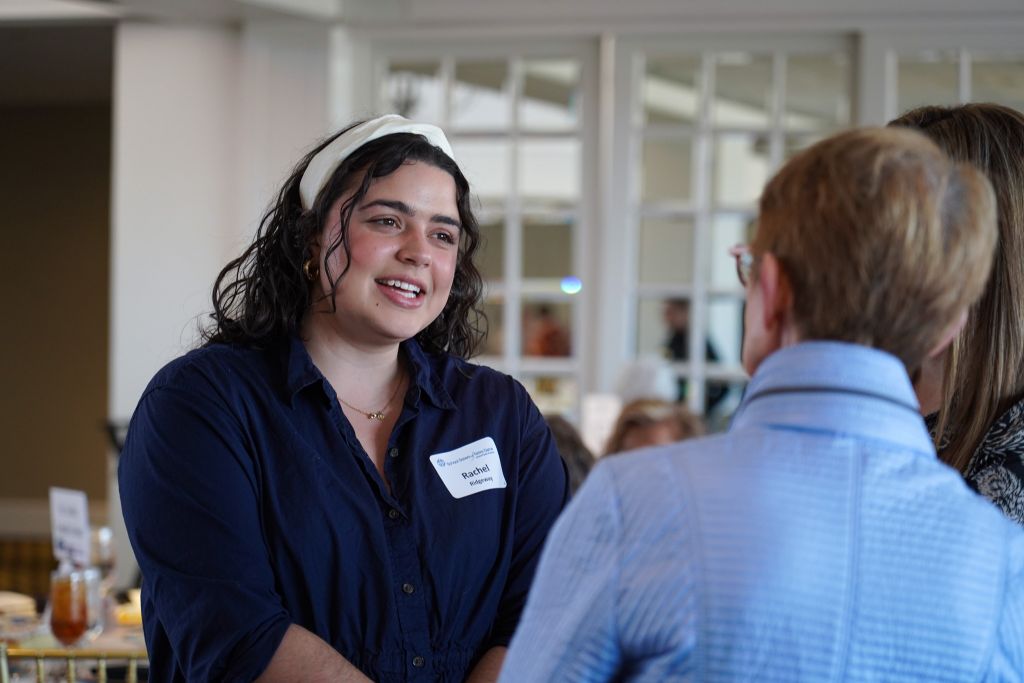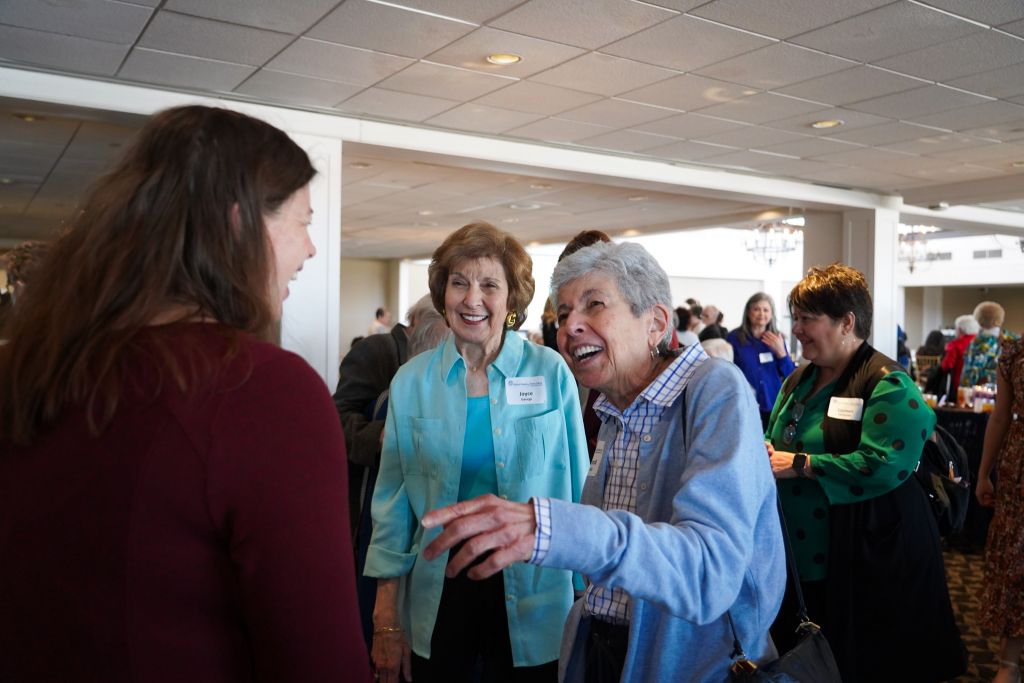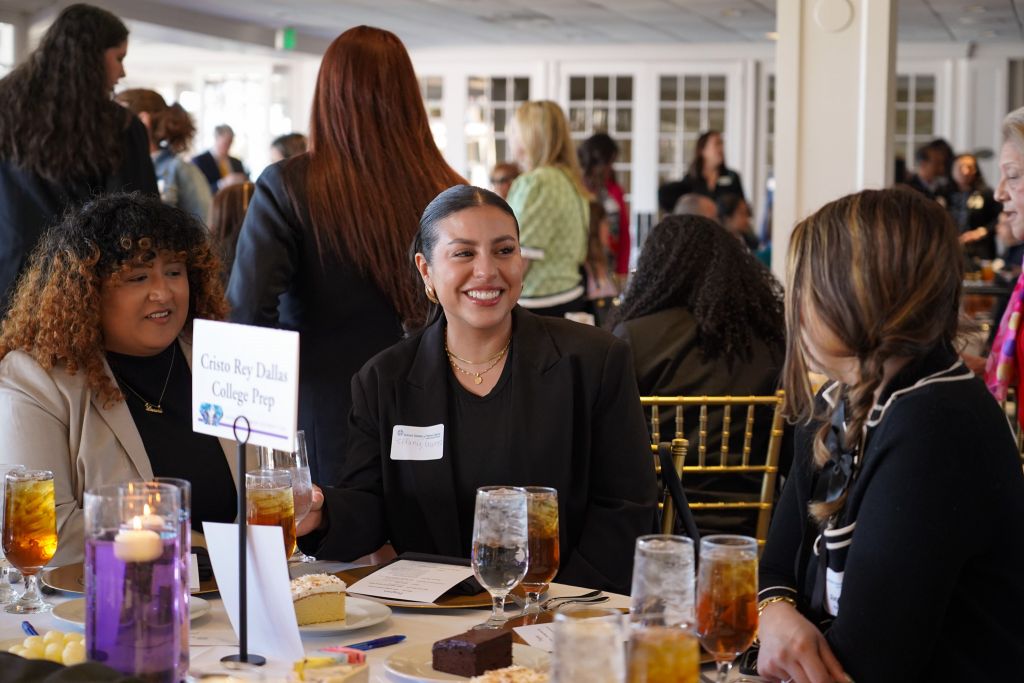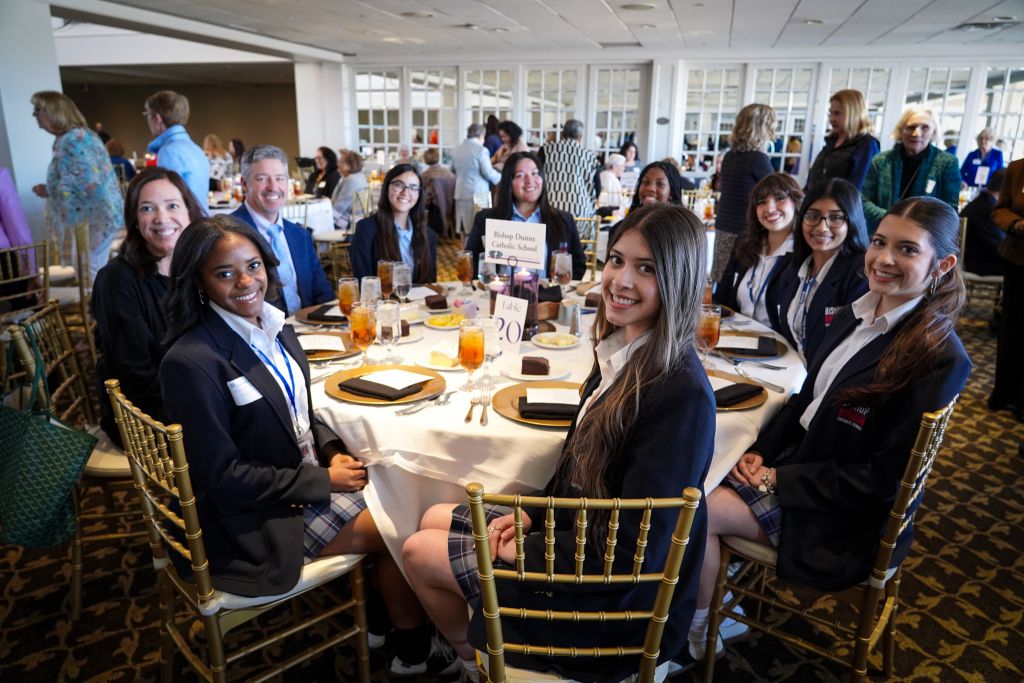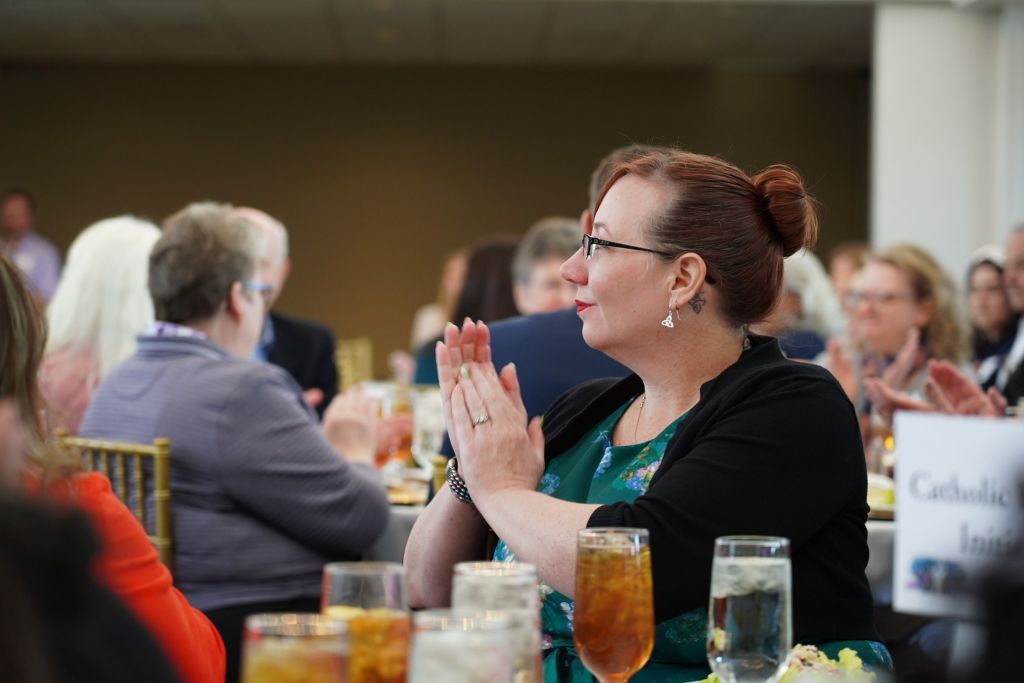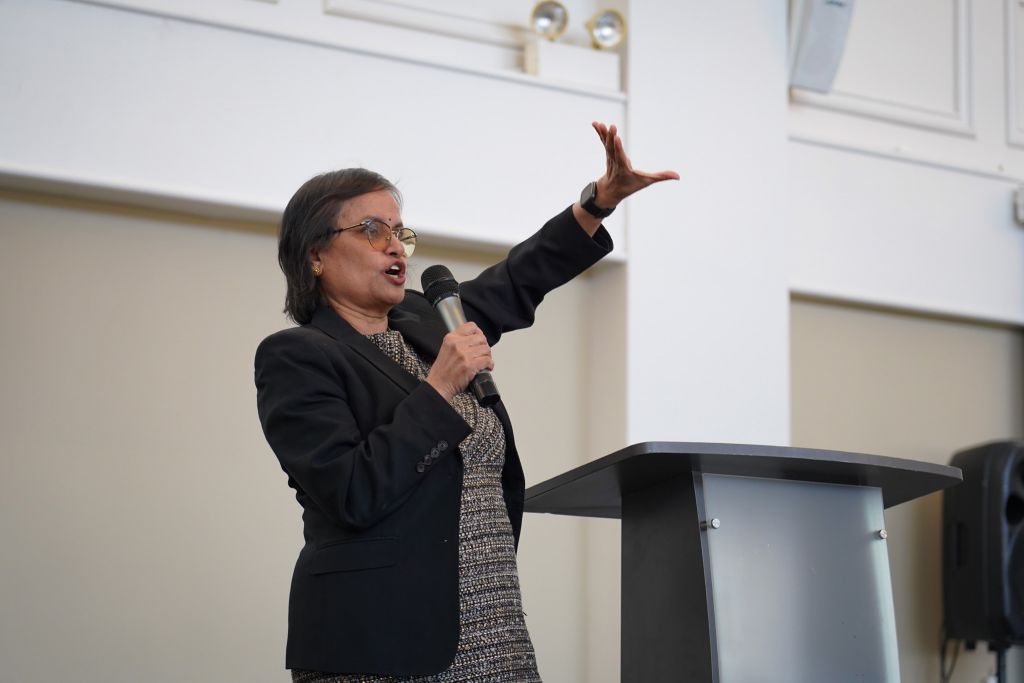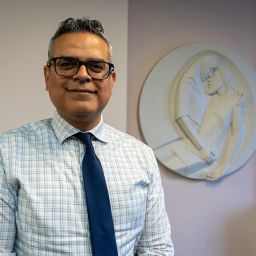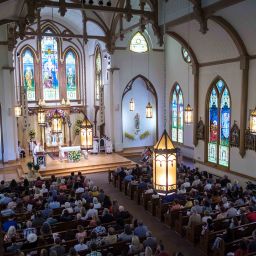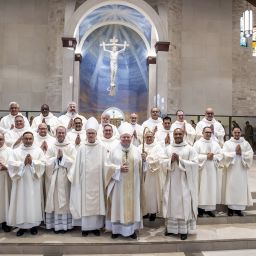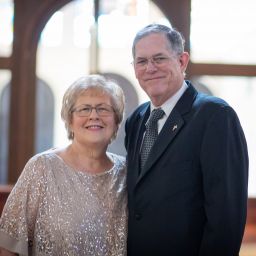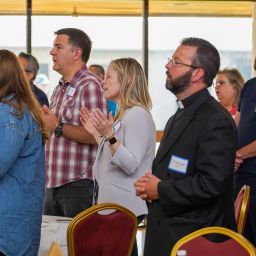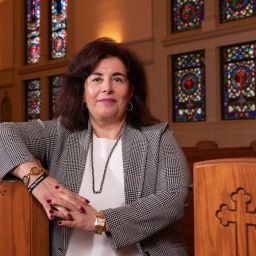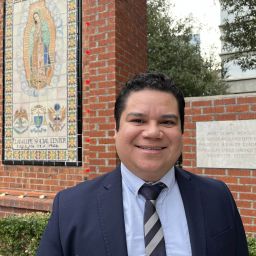By Amy White
The Texas Catholic
FARMERS BRANCH — The School Sisters of Notre Dame hosted the 13th annual Dallas Area Women’s Leadership Luncheon March 20 at the Brookhaven Country Club in Farmers Branch, attracting more than 300 attendees.
The School Sisters of Notre Dame are an international congregation of women religious committed to proclaiming the good news of the Gospel to the world, including through education. The sisters host the Women’s Leadership Luncheon annually as an opportunity to celebrate women who make positive change in their communities.
This year’s luncheon focused on the theme “The Nun Study: Transforming the Future of Alzheimer’s and Other Related Dementias.”
Dr. Sudha Seshadri was the luncheon’s keynote speaker. Seshadri is a behavioral neurologist and the Robert R. Barker Distinguished University Professor of Neurology, Psychiatry, and Cellular and Integrative Physiology at the Joe R. and Teresa Lozano Long School of Medicine at the University of Texas Health Sciences Center at San Antonio. Since 2017, she has served as the founding director of the Glenn Biggs Institute for Alzheimer’s and Neurodegenerative Diseases. Seshadri has received more than $95 million in grant funding from the National Institutes on Health, published more than 500 peer-reviewed publications, and received awards recognizing her work as a clinician, researcher, and teacher, as well as a thought leader in the study of Alzheimer’s disease.
At the beginning of her keynote speech, Seshadri asked those gathered to raise a hand if they had a loved one who suffers from Alzheimer’s disease or dementia. Hands shot up across the room.
“There are, at this moment, nearly half a million Texans living with the illness,” Seshadri said, “and for every one person living with Alzheimer’s disease, on average at least three people have their life turned upside down looking after this person.”
The neurologist shared that although the disease is prevalent and often devastating, now is a “time of hope,” as research into dementia continues and understanding of its causes grows.
The doctor sited the “Nun Study,” a longitudinal study conducted by Dr. David Snowdon, as an important step towards greater understanding of the disease. In the 1980s, nearly 700 School Sisters of Notre Dame agreed to yearly testing during their lives and donation of their brains to science after death for the purpose of developing a deeper understanding of the causes of the disease.
“This commitment, this devotion that the nuns of the School Sisters of Notre Dame over the years have made to science and humanity,” Seshadri explained, has led to significant developments in the body of research on Alzheimer’s disease.
“It takes a very special kind of person to give of their time, their blood, to agree to undergo testing when they’re completely well for an entirely altruistic purpose,” she said. “I am pretty hopeful that, in the next 10 years, we will have a lot of answers… Hats off to the nuns who showed us the way.”
Cutline for featured image: Sister Debra Marie Sciano, SSND, joins with other School Sisters of Notre Dame to offer a blessing in song at the end of the 13th annual Dallas Area Women’s Leadership Luncheon, hosted March 20 at the Brookhaven Country Club in Farmer’s Branch. (AMY WHITE/The Texas Catholic)
